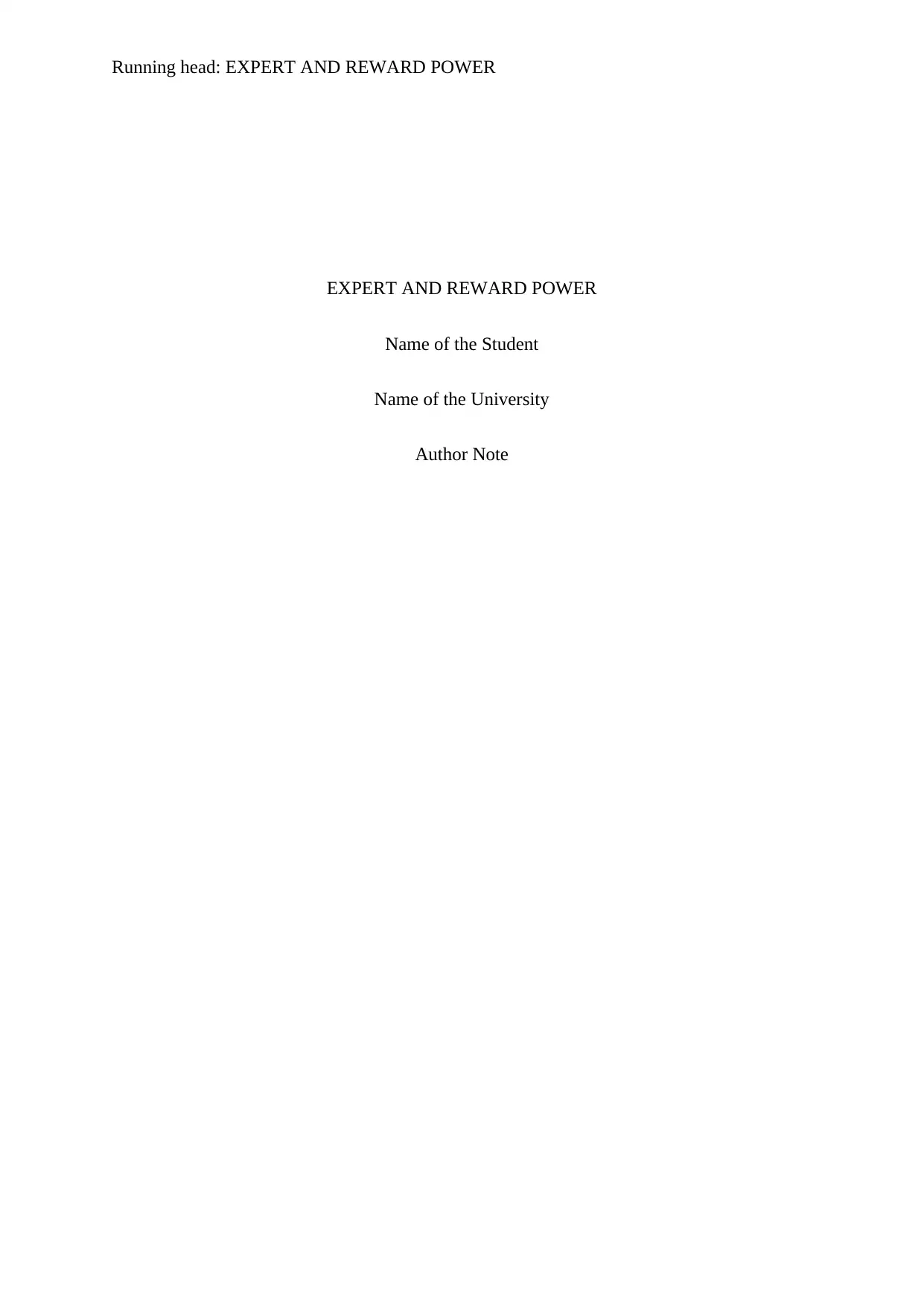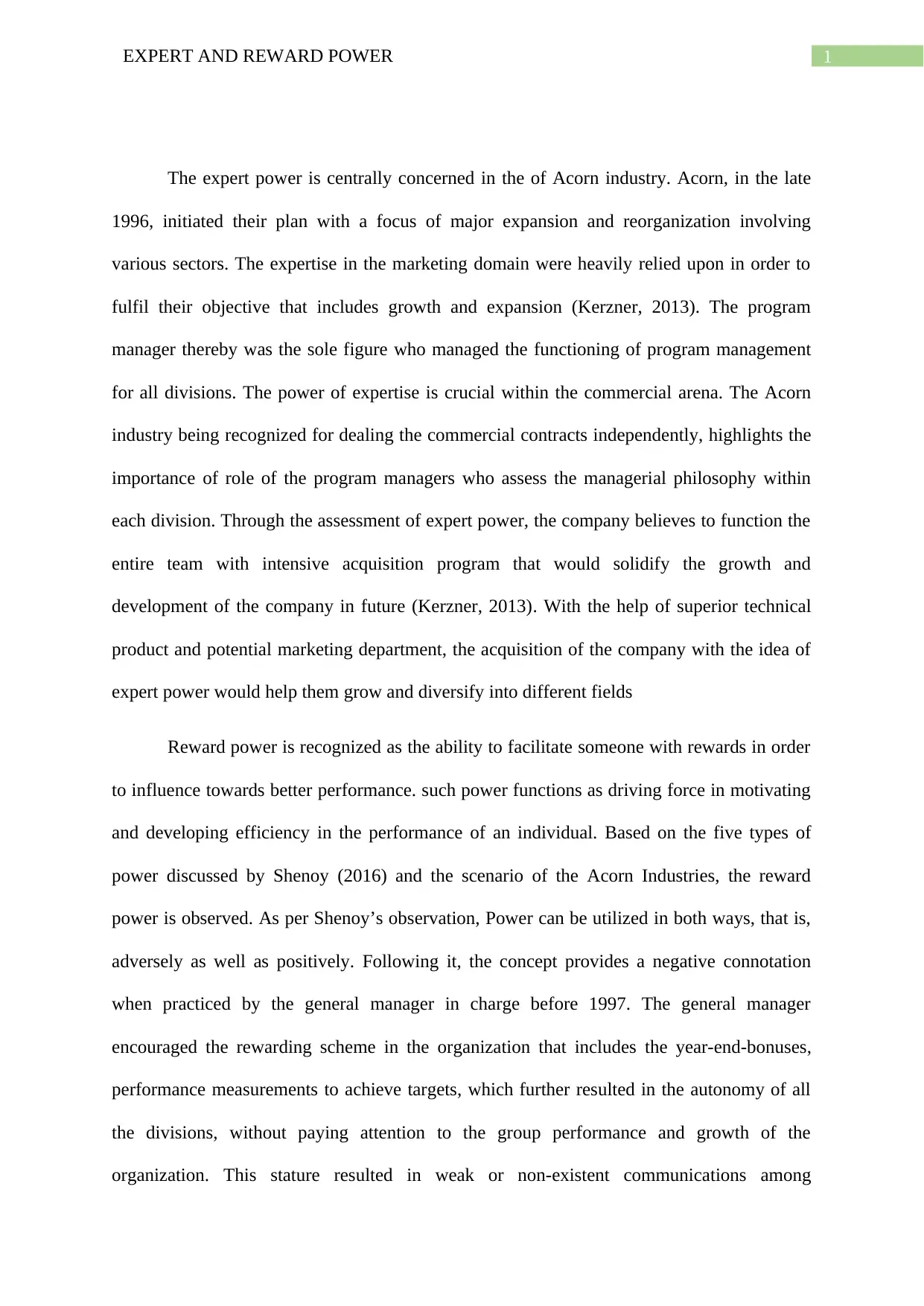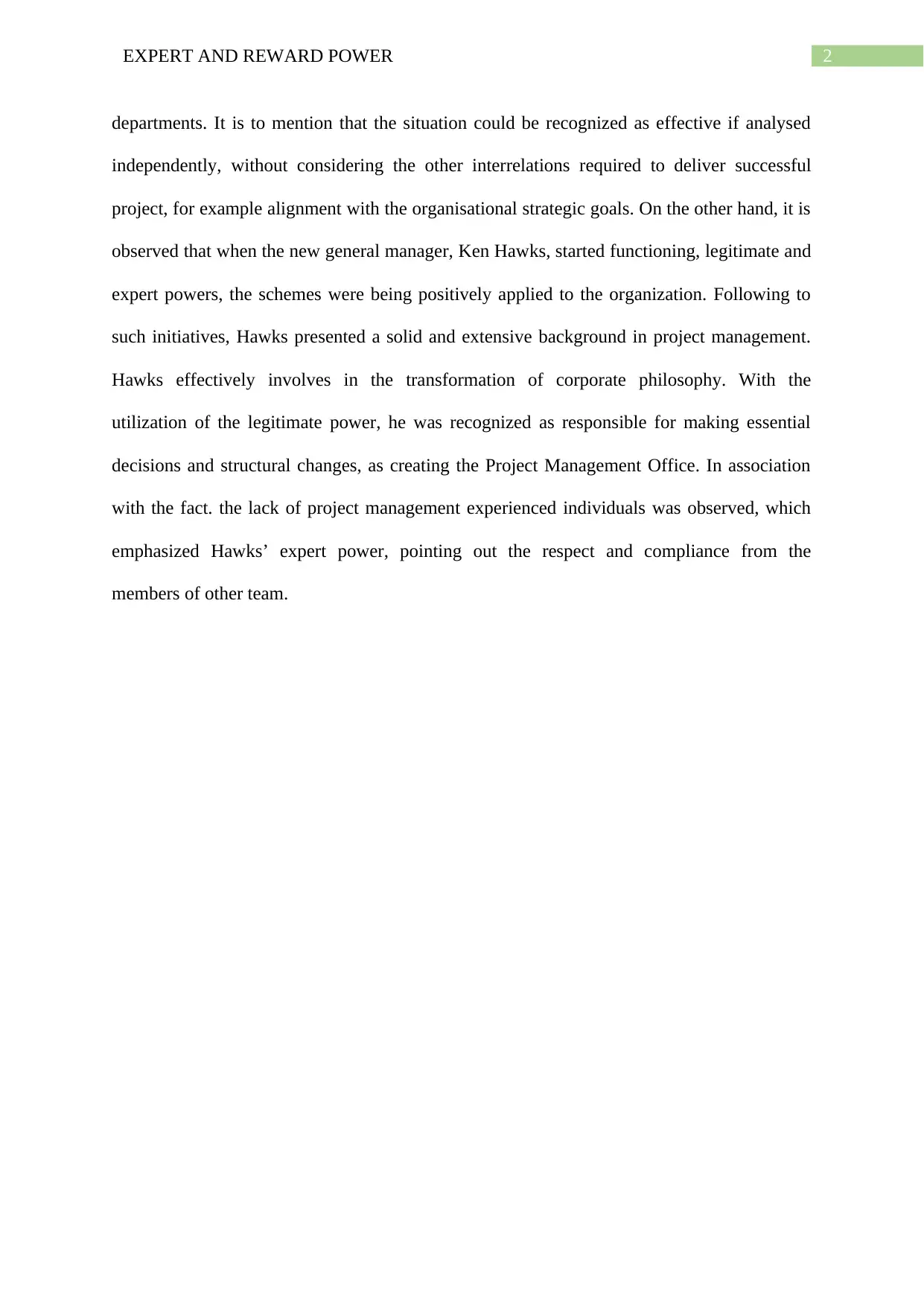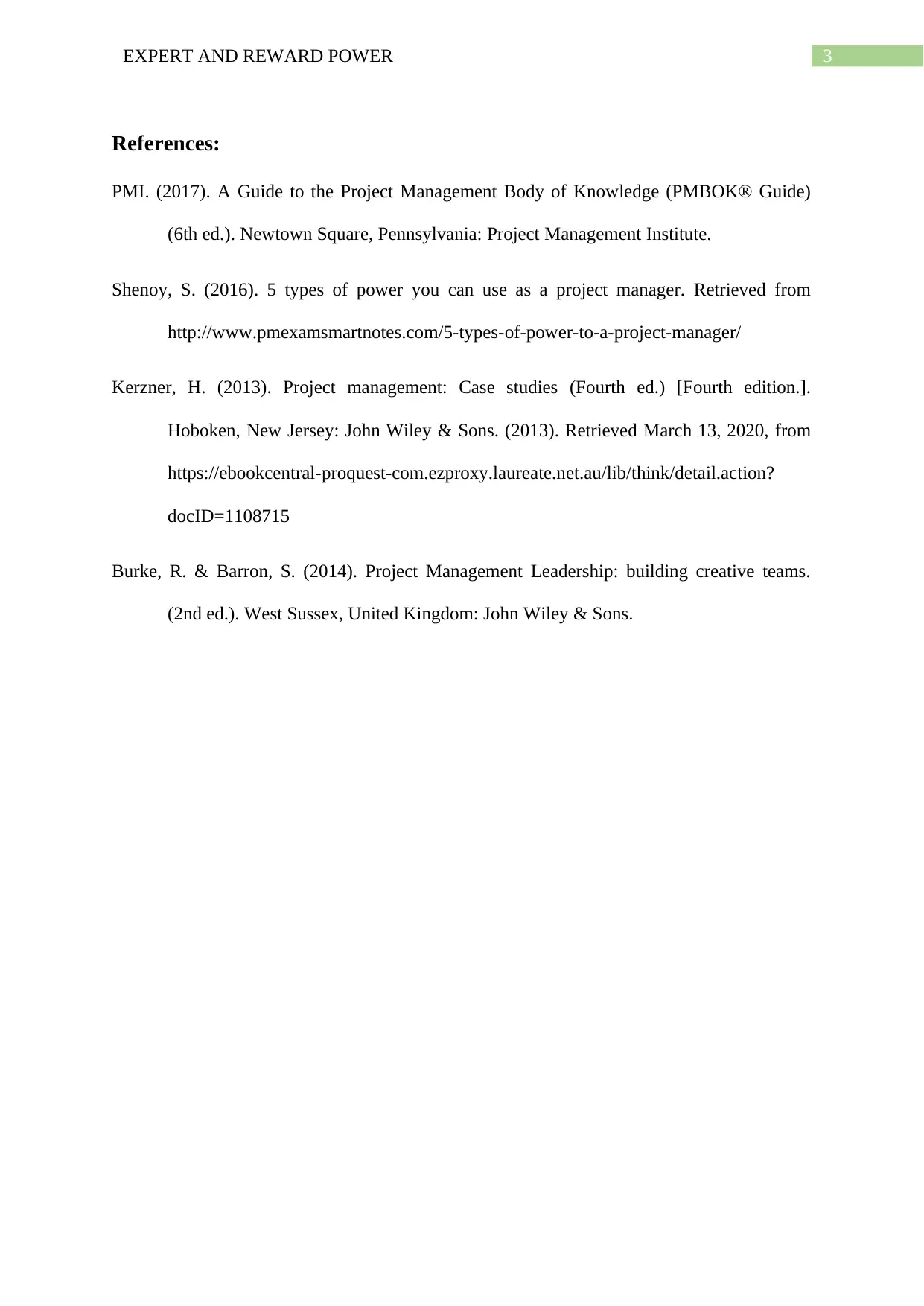Expert and Reward Power Dynamics: A Case Study of Acorn Industry
VerifiedAdded on 2022/08/23
|4
|690
|19
Report
AI Summary
This report examines the concepts of expert and reward power within the context of the Acorn Industry. The analysis begins with an overview of expert power, emphasizing its importance in the industry's expansion and reorganization efforts, particularly in marketing. The report then delves into the application of reward power, contrasting its negative and positive implementations within the company. The initial approach, characterized by the former general manager, is critiqued for its lack of focus on group performance. In contrast, the subsequent leadership of Ken Hawks, who utilized both legitimate and expert powers, is highlighted as a positive shift, emphasizing his project management expertise and influence in transforming corporate philosophy and implementing structural changes. The report references key literature in project management and leadership, including works by Kerzner, Shenoy, and Burke & Barron, to support its analysis.
1 out of 4






![[object Object]](/_next/static/media/star-bottom.7253800d.svg)